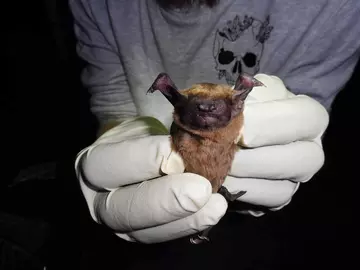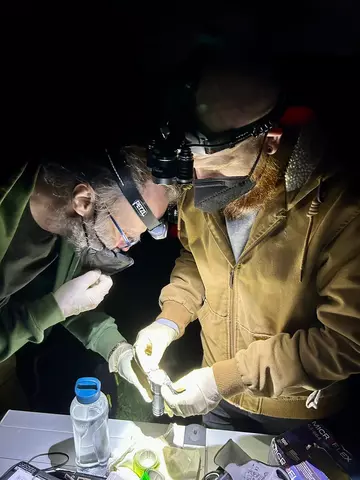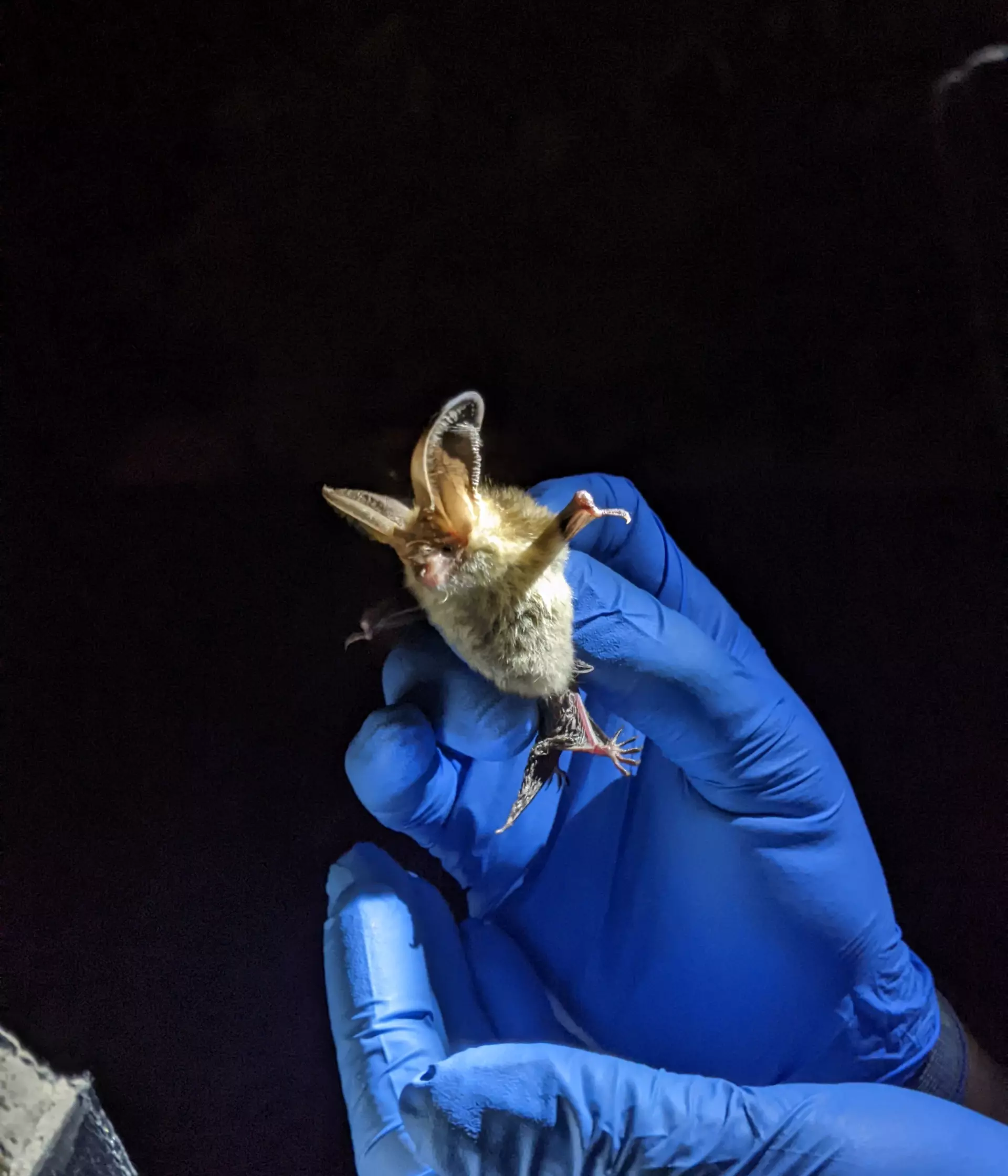
Night vision cameras have been hidden around the UK’s largest zoo in a bid to learn more about one of Britain’s most elusive species – the bat.
Alongside its rhinos and elephants, Whipsnade Zoo in Bedfordshire is home to many wild UK native species, including British bats, making the 600-acre conservation zoo the perfect hub to learn more about British bats, which have suffered a massive decline in the last century.
Despite their spooky reputation, British bats are harmless, and play a crucial role in the ecosystem – as Halloween approaches, the flying mammals slow down and begin to prepare for hibernation; providing conservationists at the zoo the ideal moment to check on the population.

Whipsnade Zoo’s resident ‘batman’ Tyrone Capel has placed camera traps around the zoo to record the bats’ activity, as well as conducting daily surveys of a historic zoo barn - converted into a bat hibernation den - to search for signs of the tiny mammals.
Tyrone said: “As the weather cools and we head towards winter, British bats will be looking for places to hibernate – and Whipsnade Zoo has some brilliant roosting spots for these little creatures. These hibernation sites peak in popularity at this time of year, so it’s an ideal time to investigate bat activity and check on the wild population.
“Inside the hibernation den, or hibernaculum, I have to look carefully in every tiny crevice - bats can perform the ultimate magic trick of squeezing their tiny bodies into miniscule spaces as they get ready to slumber through winter – this helps them to save energy in the colder months but makes them much trickier to spot!”
All 16 breeding native bat species in Britain are sadly declining in numbers due to loss of habitat, food sources, pollution and disease, so providing safe homes for Leisler's or Barbastelle’s bats to roost and hibernate is crucial to their survival. There are believed to be less than 5,000 Barbastelle's in the UK, with the winged creature classed as Vulnerable by the IUCN Red list. Its decline is thought to be linked with the extensive loss of woodlands in England, making the conservation zoo an important safe haven for the species – alongside others.

Tyrone added: “Conservation is at the heart of everything we do here at Whipsnade, and we monitor bats all year round, but it’s especially important to monitor them as bats begin to get ready to hibernate. Using camera traps in our known bat caves we can establish which bats use our dens and forests to hibernate and breed in.
“We can use this information to protect these areas, or at the very least make sure we’re quiet around them, so that we can ensure Whipsnade continues to be a native species haven. We’ll also feed share information with other bat specialists, and dedicated bat conservation organisations, to help build a better picture of the state of the UK’s nature.”
Whipsnade Zoo works with the Bedfordshire Bat Group. Bob Cornes, from the group, said bats are slow to reproduce and therefore vulnerable to population crashes.
“With human activity and development causing threats to bat habitat, it is important to monitor bat numbers and the way that bats use sites in order to protect them from further losses,” he said.
Tyrone concluded: “Whipsnade Zoo is a haven for all nature - the presence of wild bats indicates whether biodiversity is rich or poor in an area, so our resident bats are the ultimate seal of approval that our conservation zoo is thriving. While our visitors enjoy our Halloween Boo at the Zoo activities this October half term, we hope they keep an eye out for the hidden animals that call the UK’s largest zoo home.”
